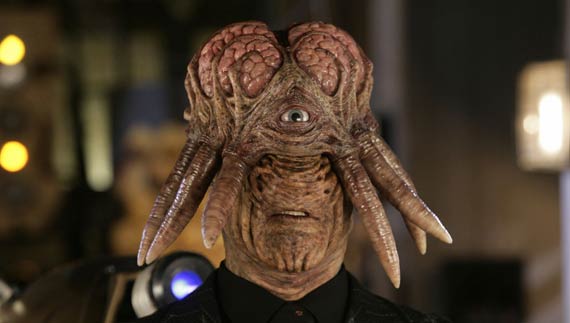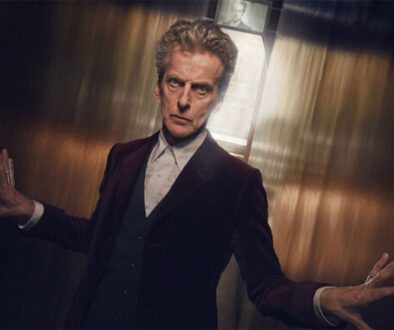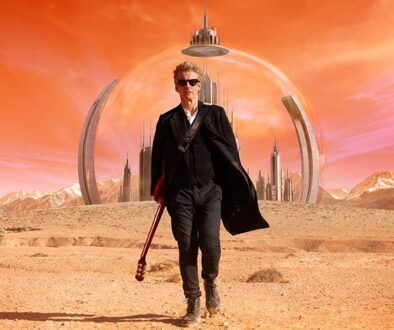Heaven Sent Review (Part 2)
Clint Hassell gives his verdict on the eleventh episode of Series 9.
Not only is “Heaven Sent” packed with symbolism and nods to past adventures, the episode pays homage to other famous sci-fi movies and television shows, taking some of their best concepts and giving them a decidedly Doctor Who spin. In addition to the layered reality motif from Inception, major story elements from Cube, the second season of Lost, and the “Second Chances” episode of Star Trek: The Next Generation can be found. Steven Moffat has adapted concepts from other fictional works to each series’ Christmas special, creating a sense of familiarity in the casual viewer. Here, Moffat again displays his talent for adapting content to Who’s canon in a way that enhances the narrative.

Compliments must be paid to Murray Gold, whose score enhances both the narrative and the episode’s symbolism in novel ways. Normally, a soundtrack influences the audience’s emotional state in subtle ways, playing in the background, except during familiar leitmotifs which serve to bookmark specific recurring events. In “Heaven Sent,” however, Gold wisely counters the bleak, monotonous visuals of the castle’s stony interiors with an expressive, experimental score. With no opening montage to recap the previous episode, the teaser of “Heaven Sent” relies on its music – – which is necessarily epic, recalling the Doctor’s long journey and paying respect to the recently deceased Clara – – to remind the audience of the tragic events of “Face the Raven.” Gold’s score also informs and prepares the audience as the Doctor first examines the painting of Clara. In shifting to a noticeably electronic and ambient sound, the music subtly references more leisurely paced, cerebral adventures from, say, the Fourth or Fifth Doctor’s era. Ironically, as the Twelfth Doctor begins to punch the wall of vibranium azbantium, the soundtrack is playful, rather than swelling to a heroic crescendo. This aural cue that the Doctor is about to do something clever, reinforces the show’s theme that brains always win over brute force. Then, as the Doctor recycles his dying body into a new copy, the music becomes pensive and contemplative, it’s regular, rhythmic beat keeping time, as an ellipses, waiting for the audience to register the episode’s big reveal.
Note that, as the Doctor redresses fireside, Gold’s score again swells with grandeur and seems to recall past episodes where the Doctor has selected what will become his representative outfit. If clothes make the man – – and certainly, each incarnation of the Doctor has had his own distinct style – – then, here, Twelve chooses to be the same man, which is especially poignant to establish, as the narrative further examines the persona of the Doctor.

Despite all of this justly deserved praise, it must be noted that “Heaven Sent” does have its shortcomings. Pay no attention to the fact that the episode has three too many actors to be hyped as “starring only Peter Capaldi” (particularly when Jenna Coleman has lines), or that the so-called “whopper” of a cliffhanger – – including the Doctor’s statement, “I came the long way around” – – was readily apparent, if not predictable.
No, the episode’s biggest flaw is a plot hole, that is, unfortunately, central to its narrative. The Doctor claims that “every room . . . reverts to its condition at the moment I arrive.” “It tidies up after itself,” he says, calling it “automated room service,” before theorizing that the “whole place is inside a closed energy loop, constantly recycling.” This certainly seems to be the case, as the bedroom’s flowers, window, and stool continue to be refreshed, the bed linens and the painting of Clara don’t deteriorate, and the electronic monitors and teleportation equipment still work, despite constant use, over two billion years. The Veil itself must also reset, as otherwise, after eons, the “confessions” extracted would get rather mundane. (“Jack was a better kisser than Rose!” “Uh . . . sometimes I pee in the TARDIS pool.” “Er, I don’t really speak baby . . . ?”) The episode is careful to show the castle’s mist-like cleaning system removing the Time Lord’s smeared blood from the stony floors and disintegrating most of the Doctor’s burned corpse. However, not everything in the castle resets, including any of the previous Doctor’s skulls or the last Doctor’s wardrobe. In fact, the entire plot is based on the fact that the narrative’s internal logic is inconsistent, enabling the Doctor to communicate with himself via a message scrawled in sand, and to escape his eternal prison by chiseling his way through an amazonium azbantium wall. As plot holes go, this is nigh unforgiveable.
Further, that the castle even has a perpetual cleaning feature indicates that the Time Lords expected the Doctor to outsmart the Veil’s burning “face massage of death,” and to survive years into the future. Thus, the confession dial was designed not as a prison or death trap, but as a torture chamber to extract a “confession” about the nature of the “hybrid.” However, if the Doctor is being interrogated, it doesn’t appear that anyone ever checks on the dial’s progress. If the information about the “hybrid” is so important, then why is no one paying attention? Did no one, in two billion years, ever notice that the Doctor was inching ever closer toward escape?

Ironically, “Heaven Sent” is weighed down by its seeming desire to match “Listen” in terms of epic importance. Despite the many allusions to Moffat’s Series 8 magnum opus – – including the repeated notion that the Doctor’s travels through time and space are a result of his being scared – – “Heaven Sent” lacks the series-redefining heft of “Listen.” Where “Listen” reveals the true reason for the Doctor’s persona and mission, and serves as a catalyst for every adventure within the series’ 52-year canon, “Heaven Sent” emphasizes the “hybrid,” tying the episode to Series 9’s as yet ill-defined, lackluster story arc. Even featuring an appearance of Gallifrey furthers a subplot barely ten years in the making. In terms of mythology building, “Listen” and “Heaven Sent” are on vastly different levels, so the self-comparison inherent to “Heaven Sent” seems like self-sabotage, at best.
Which is a shame, really, because “Heaven Sent” fairly warrants praise on its own merit. By layering the script with an unconventional narrative and symbolism, expanding the episode’s length to allow for patient pacing, and showcasing the talent of lead actor Peter Capaldi, Steven Moffat and director Rachel Talalay craft an unforgettable episode that is captivating and beautiful, hopeful and bold.









